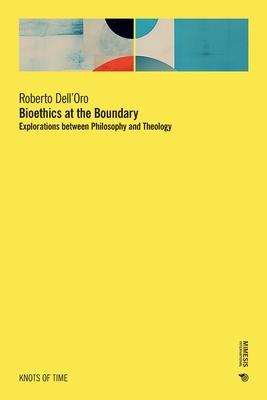The book is composed of 21 chapters. Each of them has its own integrity, and it can be read independently of the others. Thus, the reader should not expect a progressive unfolding of the content, even if, in the end, one can identify something like a unified "Gestalt". Part I, "Bioethical Openings", offers a number of essays dealing with questions of method, together with issues currently under scrutiny in the conversation of bioethics scholars; among others, cloning, human genome editing, euthanasia, assisted suicide, and abortion. Part II, "Philosophical Probings", takes up topics of a more obvious philosophical nature, spanning epistemological, anthropological, and social-ethical questions. In Part III, "Theological Expansions", the books opens to a broader vista, pushing philosophical mindfulness to the point where it merges with the preoccupations of theology. The work of earlier practitioners of bioethics, many of them theologians, was precisely of such nature. In fact, what made their contributions so substantive might have something to do with their background premises, informed by metaphysical confidence and thick anthropological notions, rooted in theological categories, yet open to public argumentation.

Bioethics at the Boundary: Explorations between Philosophy and Theology
The book is composed of 21 chapters. Each of them has its own integrity, and it can be read independently of the others. Thus, the reader should not expect a progressive unfolding of the content, even if, in the end, one can identify something like a unified "Gestalt". Part I, "Bioethical Openings", offers a number of essays dealing with questions of method, together with issues currently under scrutiny in the conversation of bioethics scholars; among others, cloning, human genome editing, euthanasia, assisted suicide, and abortion. Part II, "Philosophical Probings", takes up topics of a more obvious philosophical nature, spanning epistemological, anthropological, and social-ethical questions. In Part III, "Theological Expansions", the books opens to a broader vista, pushing philosophical mindfulness to the point where it merges with the preoccupations of theology. The work of earlier practitioners of bioethics, many of them theologians, was precisely of such nature. In fact, what made their contributions so substantive might have something to do with their background premises, informed by metaphysical confidence and thick anthropological notions, rooted in theological categories, yet open to public argumentation.